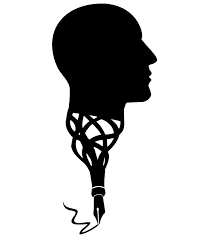 On Standards and Content
On Standards and Content
Pondiscio is right. He argues almost daily for standards in skill acquisition… often focusing on issues of early reading. He regularly calls for a return to explicit phonics instruction.(Right there with you, RP.) Decoding as a fundamental part of learning to read. (decoding isn’t comprehension. It isn’t inference. But, that’s another discussion.)
Pondiscio also argues that content matters. (I agree!) Cultural, literary, artistic, scientific, historical, political, mathematical literacy is the bedrock of being educated. Children must come to the adult table armed with the ideas and knowledge that informs their society past and present….all the writers, thinkers, philosophers, scientists, creators, leaders (living and dead, male and female, white and non white, the good, the bad, the feet of clay). Those who argue nonsensically that nothing in particular needs to be taught, known or wrestled with because everything can be googled are fashionably wrong. They should be ignored. Those who argue that we should dismantle education and teach our biases are even more fashionably wrong. A functional society requires each generation to be grown on a solid and complex foundation of knowledge, critical arguments, ideas, and skills. Their access should not be censored or curated for anyone’s end. The end.
On the Value of Creativity
Pondiscio is wrong. In his 2015 review of Sir Ken Robinson’s book Creative Schools for Fordham Institute (recently amplified on twitter), he perversely argues against the importance of creativity in learning. According to him, creativity is in opposition to standards and he derides it with a corny, back-to-basics mischaracterization of Robinson’s argument, wondering glibly where was the “interpretive dance, semaphore flags, or other means to argue against standards and for creativity in education.” This is nonsense, of course.
Creativity is not only NOT in opposition to standards or content, it is encompassed in several standards and includes the ability to combine, make connections, problem solve, research, think in analogy, make original arguments, compose, create, imagine. Creativity is a central component of human intelligence not some separate frilly capacity that we just don’t have time for. Arguing that it is fluff or a luxury is uncritical pendulum swinging. It needs to be called out as such. You don’t have to choose between literacy and creativity. There is literally no opposition between these two good things. They support and uplift one another.
The Problem is with the Pendulum
The problem is with the pendulum, Pondiscio. If I may paraphrase… like many fine people before him, he fell victim to one of the classic blunders, the most famous of which is “Never get involved in a land war in Asia,” but only slightly less well known is this: you don’t have to pick sides in the discussion of ideas. The antidote to pendulum swinging is to start from the premise that if all ideas are a la carte, you can disagree with someone on a fundamental level, and still agree on some things. We can pick and choose from those ideas.
As it relates to the notion of creativity in the learning process, you might as well offer to tear education down to the studs as to actively seek to reduce opportunities to explore one of the fundamental attributes of intelligence. You can be for both literacy and creativity, and you should be. Both are part of learning and developing. There is a fundamental goodness to children being able to create as well as consume content, to explore what they can discover as well as be told what has been discovered. Young minds, like young bodies, are developed when exercised, and they are exercised by rehearsal, simulation, creation, invention and age appropriate self direction. They need to practice and build these muscles just like they do any other skills. You can bet that the hoi aristoi are not neglecting that muscle for their children. Let’s not neglect it for ours. No child whose creative and inventive nature has been neglected is well positioned to compete with those whose creative and inventive natures have been nurtured.
So, that brings us to Robinson. He may have some good ideas. But, first we would have to know what they are. In his review, Pondiscio tends to mischaracterizes them. He errs by going for clever over critical.
He begins his mischaracterization with a snarky observation that Robinson uses capitalization and punctuation to write his book. This is true. Robinson uses mechanics. But what is not true is Pondiscio’s implication. He is arguing that Robinson’s vision does not include mechanics for others. It’s not an incisive or fair critique because nowhere in Robinson’s well punctuated book does he say that there is no purpose to learning how to use a period. Worse, he argues the opposite. He explicitly calls for the study of the Language Arts which he enumerates including the skill of literacy which he defines as , “...knowing the skills and conventions of reading and writing..” (143) He adds that Language Arts should include public speaking, literary analysis, and writing. Seems sensible.
Pondiscio then tosses off a list of issues that he mostly doesn’t address… labeling them as merely an “anti reform jukebox.” Loaded language is not an argument; it’s a dog whistle. Disappointing.
He does take the time to address a few minor points. He ridicules Robinson’s characterization of the “standards movement” as unaware of the real state of the classroom in 2015, which was, according to him, all about differentiation and group work. I don’t know what was going on over at Democracy Prep in 2015, but in the public schools I am familiar with… teaching was drowning in acronyms. CCSS, HST, AYP, APPR, VAM, NCLB. John King was Commissioner. RTTT was raging. CCSS testing had begun in New York two years earlier and was literally everywhere in 2015. The biggest push for “differentiation” I saw in 2015 was a pull out for kids who were on the border between level 2 and level 3 so we could test prep the snot out of them. We experienced a steady diet of direct instruction and test prep in response to the underfunded, punitive federal mandates of NCLB and RTTT. Group work? What was that?
Pondiscio also finds fault with Sir Ken’s central argument that children are “natural born learners.” He argues that this defies “what cognitive science tells us about how knowledge and practice drive skill and competence.” No, RP. It doesn’t. This is just more pendulum swinging. In what sense is the natural condition of being a learner at odds with the fact that it takes practice to build competence? There’s no disagreement. Children are natural born learners, and knowledge and practice drive skill and competence.
He has an issue with Robinson’s analogy that “education like organic gardening [consists] of creating the best conditions for children to learn and develop in.” I suspect that this is just a stylistic objection. He finds it fatuous and simple. I hear you. It is a bit folksy granola, but if you boil that out, whether to agree or not depends on only what Robinson means by best conditions.
What is Robinson pitching? We could just whistle to our dogs that it’s the whole child. But, let’s not err on the side of not making the point. What does whole child mean? Roughly it means to consider also the well being of the child who spends half of waking hours with us. The question for the pendulum swinger is this: In what sense does concern for the “whole” child signal the opposite of concern for the intellectual development of that child? It doesn’t.
And that brings us to the question that remains unanswered. What is warmed over and fuzzy according to Pondiscio? What would he have us remove from the whole child list to make our school more of a lean, mean, educating machine? Wrap around services? Leveraging student interests and affinities? Engagement? Working with natural curiosity? Different pathways to graduation for different student? Sense of community and being cared about by the adults who serve you?
Even in a skim, some of Robinson’s areas to cultivate seem well considered unless Pondiscio is suggesting that care for children is some sort of privileged state of nature that we (aka teachers teaching working class children) don’t have time for.
His less than forthcoming review is a short back-to-basics drumbeat that “schools have existed to transmit—consciously and unconsciously—the language, knowledge, and values of their societies at any given time and place.” I agree! Although, which values to leave our children with is hotly debated in every given time and place. So… does he also mean deciding who gets to decide what is valued?
Where is his actual disagreement? Hard to say. For the most part, Pondiscio’s review is a quick dive into a pool of snarky ad hominem. (“Nod your heads like, yeah.”) He doesn’t say much about Robinson’s points, and he sums up with the observation that “thinking creatively about schooling” is a luxury afforded to the educated. Hmm.. perhaps getting to write, have opinions, and be read about education in public spaces is the luxury.
But, I’ll bite. In what respect is it a luxury to improve the way we deliver content and engage students? By luxury does he mean that it’s something frivolous… to be afforded only by those who can afford it? Okay. In what world is it too much trouble to engage students in creatively working with words, numbers, ideas, things and information? Surely we want these things for our own children. Are other people’s children not our children for the purposes of teaching them? Don’t all children need support, opportunities, character development, a place and a way to grow interests, a sense that they are cared for, accepted, access to the human drives that make life worth living?
If not the children he would teach, who among children should receive an education that prepares them for participating in the creation of culture?
After all, you can do all of the above and still teach phonics.

